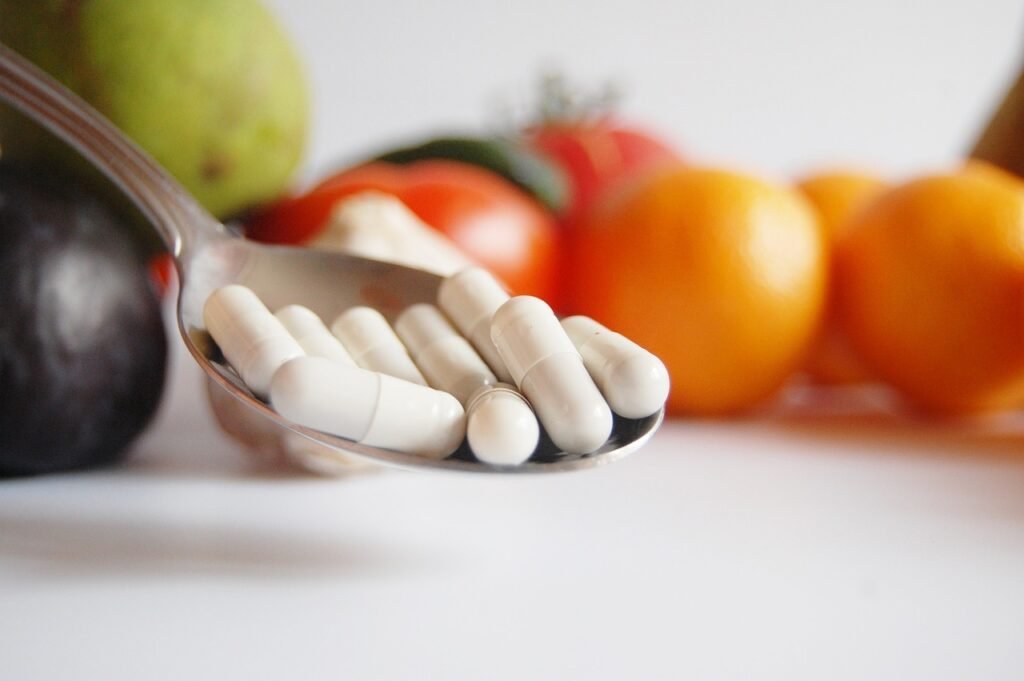
- Intro
- Understanding the Impact of Antibiotics on Gut Health
- The Science Behind Probiotics and Antibiotics Co-Administration
- Identifying the Best Probiotics to Take with Antibiotics
- How to Take Probiotics with Antibiotics
- Additional Tips for Supporting Gut Health While on Antibiotics
- When to Consult a Healthcare Professional
- The Future of Probiotics and Antibiotics Use
Intro
Antibiotics are a critical tool in fighting bacterial infections, but they often come with a downside: disruption of the gut’s natural flora. This disruption can lead to various gastrointestinal issues, including diarrhea, which is why finding the best probiotics to take with antibiotics has become an essential discussion in health circles.
In this comprehensive guide, we will explore the intricate relationship between probiotics and antibiotics, helping you to choose the right probiotics to maintain your gut health during and after antibiotic treatment.
Understanding the Impact of Antibiotics on Gut Health
When antibiotics are introduced into the body, they serve their primary purpose of combating infection-causing bacteria.
Yet, this process is not selective, leading to a broad impact on the microbiome residing in our intestines. This indiscriminate action against bacteria results in a significant shift within the gut environment.
Beneficial bacteria, which play a critical role in digestion, immune function, and maintaining the integrity of the gut barrier, are diminished.
Concurrently, there’s an unintended proliferation of opportunistic and potentially harmful bacteria. Such changes can upset the delicate balance of the gut ecosystem, paving the way for gastrointestinal distress and other health concerns.
The loss of microbial diversity and the decrease in beneficial bacteria can lead to an environment that is less resilient to infections and inflammation, further exacerbating the potential for discomfort and disease.
This disruption underscores the necessity of fostering a strategy to protect and restore the gut microbiome during and after antibiotic treatment, highlighting the critical role that probiotics can play in this recovery process.
The Science Behind Probiotics and Antibiotics Co-Administration
The co-administration of probiotics and antibiotics hinges on a strategic approach to counterbalance the adverse effects antibiotics have on the gut microbiome.
At the core of this strategy is the introduction of beneficial bacteria through probiotics, aimed at replenishing the gut’s beneficial flora compromised during antibiotic treatment. Research illuminates the mechanism by which probiotics exert their protective effects.
These live microorganisms colonize the gastrointestinal tract, where they engage in several restorative actions. They compete with pathogenic bacteria for resources, thereby inhibiting their growth and adhesion to the gut lining.
Additionally, probiotics stimulate the body’s immune responses, enhancing the production of antibodies and promoting the activity of immune cells.
This multifaceted interaction helps maintain a balanced microbial environment, essential for gut health and overall immune defense.
Studies underline the effectiveness of this practice by showing a reduction in the incidence of antibiotic-associated side effects, notably diarrhea, when probiotics are taken alongside antibiotics.
This body of evidence supports the rationale for integrating probiotics into antibiotic regimens, offering a promising avenue to mitigate the unintended consequences of antibiotic therapy on the microbiome.
Identifying the Best Probiotics to Take with Antibiotics

Navigating the vast landscape of probiotics can be daunting, especially when seeking the most effective strains to complement antibiotic therapy.
Certain probiotic strains have emerged as frontrunners due to their robust evidence in promoting gut health in the context of antibiotic use.
Among these, Lactobacillus rhamnosus GG stands out for its proven ability to prevent antibiotic-associated diarrhea and support the maintenance of intestinal flora.
Similarly, Saccharomyces boulardii, a yeast-based probiotic, has demonstrated effectiveness in reducing the duration and incidence of diarrhea caused by antibiotics.
Lactobacillus acidophilus and Bifidobacterium bifidum are also notable for their beneficial roles in restoring gut balance, offering an additional layer of support against the depletion of beneficial microbes due to antibiotic treatment.
These strains have been extensively researched and provide a reliable foundation for those looking to safeguard their gut microbiome while undergoing antibiotic therapy.
Incorporating these specific probiotics into your regimen can be a strategic move towards minimizing the collateral damage to your gut health while battling bacterial infections.
Our recommendation:
How to Take Probiotics with Antibiotics
To optimize the benefits of probiotics when taken alongside antibiotics, attention to timing is paramount.
It’s advised to administer probiotic supplements at least two hours apart from antibiotic doses.
This strategy helps ensure that the antibiotics do not prematurely destroy the probiotics, allowing these beneficial microbes to successfully reach and colonize the gut.
This gap creates an environment where probiotics can thrive despite the presence of antibiotics, working to repopulate and maintain the gut’s healthy microbiome.
Continuation of probiotic intake is equally important once the antibiotic course has concluded.
Extending probiotic supplementation for several weeks after finishing antibiotics can be crucial in fully restoring the balance of gut flora.
This extended use helps solidify the gains made during antibiotic treatment, ensuring a stable and healthy gut environment moving forward.
In practice, incorporating probiotics into one’s routine while on antibiotics involves selecting a high-quality probiotic supplement containing strains with a strong track record of gut health support, such as Lactobacillus rhamnosus GG or Saccharomyces boulardii.
Consistency in taking these probiotics as per the recommended timing and duration maximizes their effectiveness in counteracting the disruptive effects of antibiotics on the gut microbiome.
Additional Tips for Supporting Gut Health While on Antibiotics
Aside from incorporating probiotics into your routine, several other strategies can bolster your gut health during an antibiotic regimen.
Emphasize a diet abundant in fiber, as it serves as fuel for beneficial bacteria, fostering their growth and activity within the gut.
Foods high in fiber such as fruits, vegetables, legumes, and whole grains should be staples in your meals. Hydration is another key element; ensure you drink ample water throughout the day to aid in digestion and the absorption of nutrients.
Check out our favorite books on holistic nutrition to learn more about healthy gut friendly diets.
Limiting the intake of alcohol and processed foods is also advisable, as these can be detrimental to gut health, potentially exacerbating the imbalance caused by antibiotics.
Including fermented foods in your diet offers a natural boost of probiotics. Items like yogurt, kefir, sauerkraut, and kimchi not only enrich your diet with diverse flavors but also supply live cultures that contribute to the diversity and strength of your gut microbiome.
These dietary adjustments, coupled with probiotic supplementation, create a comprehensive approach to maintaining and restoring gut health while undergoing treatment with antibiotics.
When to Consult a Healthcare Professional
While incorporating probiotics alongside antibiotic therapy is beneficial for most, there are circumstances that necessitate professional guidance.
Individuals with underlying health conditions, particularly those affecting the immune system, may require a tailored approach to probiotic supplementation.
This is also the case for persons undergoing treatment for critical illnesses or those experiencing severe digestive issues.
The interaction between probiotics and the body can vary significantly based on one’s health status, making the advice of a healthcare provider invaluable.
They can offer insights into the most suitable probiotic strains that align with your specific health needs and antibiotic regimen.
Moreover, for those navigating chronic health conditions, a healthcare professional can assess the potential for interactions between probiotics and other medications being taken.
This precaution ensures that the addition of probiotics to your routine supports your health without unintended complications.
Engaging with a healthcare provider is a crucial step for those with health complexities, ensuring that the path to improved gut health through probiotics is both safe and effective.
The Future of Probiotics and Antibiotics Use
The horizon of probiotic and antibiotic co-administration is bright, with research steering towards personalized medicine.
Innovations in this space may soon allow for customized probiotic formulations, tailored to the unique microbiome profiles of individuals.
This precision approach promises to elevate the efficacy of probiotics, ensuring a more harmonious balance between beneficial microbes and antibiotic therapy.
As we delve deeper into the symbiotic relationships within our gut, the potential for developing probiotic strains specifically engineered to withstand common antibiotics could revolutionize how we mitigate the gut flora disruption caused by these medications.
Additionally, the integration of artificial intelligence and machine learning in analyzing gut microbiome data could lead to predictive models that forecast how different individuals might respond to specific probiotic strains during antibiotic treatment.
This could help in preemptively adjusting probiotic doses or strains to optimize gut health outcomes.
The journey towards a future where gut health is preserved with minimal intervention during antibiotic use is underway, promising to enhance our well-being and resilience against infections.
The ongoing exploration of this field underscores a commitment to understanding and leveraging the complex interactions within our microbiome for better health.
Pin this post to read later




